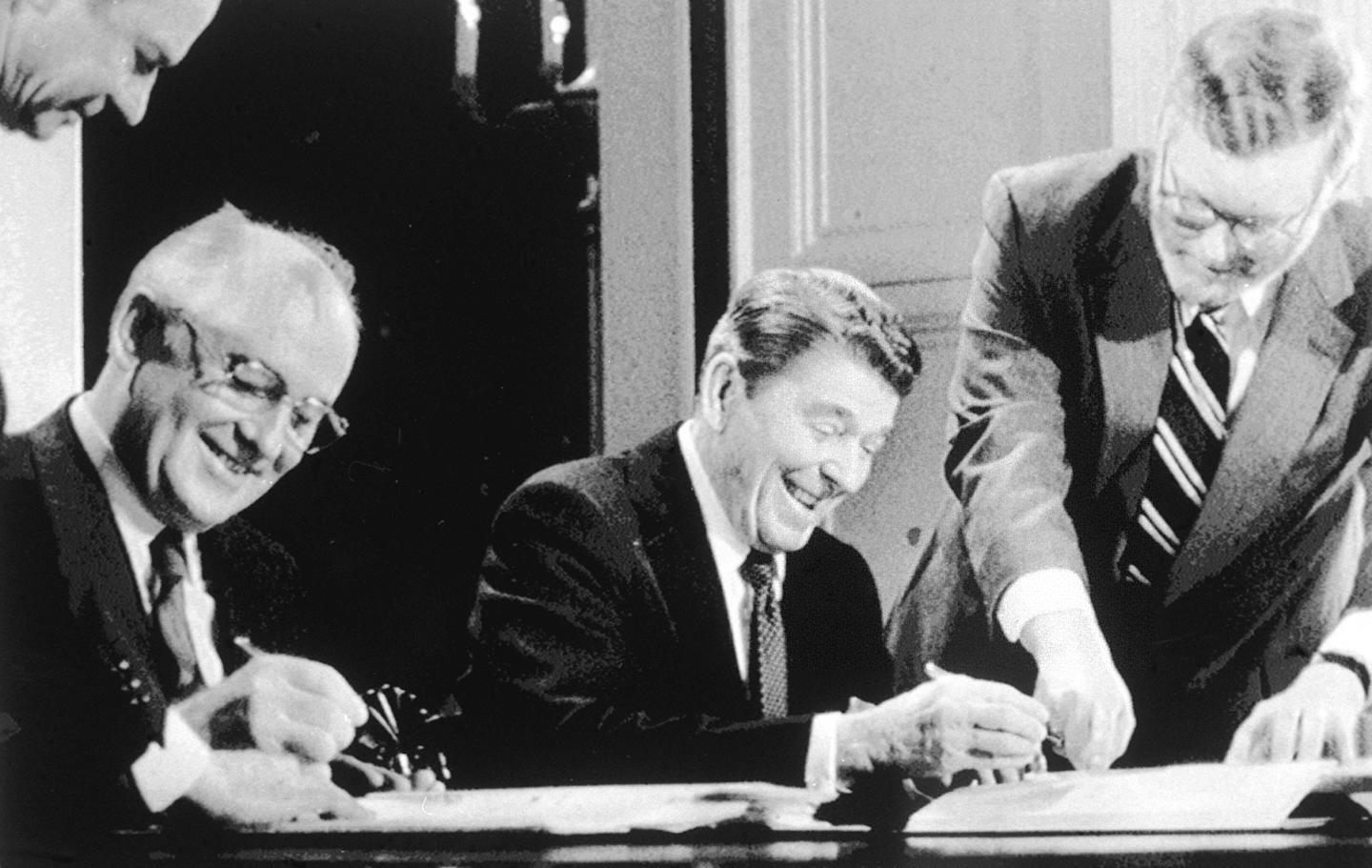End of INF and fear of a new arms race
- By Sajjad Malik
 0 Comment(s)
0 Comment(s) Print
Print E-mail China.org.cn, August 8, 2019
E-mail China.org.cn, August 8, 2019

With the U.S. officially withdrawing from a key arms control treaty, a virtual no-holds-barred scenario has emerged if the leading powers want to acquire missiles previously banned. The result could be a devastating new race to build nuclear arsenals to the detriment of global security.
The Intermediate-Range Nuclear Forces Treaty (INF) signed by Ronald Reagan and Mikhail Gorbachev in 1987 proved a remarkable agreement because it kept a lid on the construction and deployment of weapons in that particular category.
The ban covered missiles in the 500-5,500 km range. The agreement was kept until the U.S. and NATO accused Russia of violating it and decided it was time to quit.
Russian had denied reports that it was building a cruise missile violating treaty terms. However, this avowal was not accepted and the INF fell apart after expiry of the six-month notice period on August 2 when Washington duly stomped off.
The end of restriction on developing intermediate range missiles could have long-term consequences for the world. The scramble to tip the strategic balance in their favor will lead countries to procure more lethal weapons in this category.
They are highly dangerous as they can be equipped with a nuclear head to hit targets not so far away, and where the response time for the target nation is limited, heightening the risk of unintended conflicts.
Another aspect of the slow death of INF is lack of regard for disarmament treaties. Slowly but surely, important accords to cut back stockpiles of weapons are dying. For example, the Bush administration decided to withdraw thus killing the Anti-Ballistic Missile treaty in 2002.
Yet another agreement of the Cold War era called the New Start treaty, limiting long-range nuclear missiles, is scheduled to expire in February 2021. There is little chance the parties involved will show a desire to renew it or reshape it according to the needs of the 21st century.
The importance of such treaties can be judged from the fact that NATO and the former USSR under the INF banned all short and medium range ground-launched conventional and non-conventional missiles – though, sea-launched missile were exempted.
The two sides also began to deactivate the missiles covered by the treaty and, by 1991, had destroyed nearly 2,700 such weapons. It was a huge success towards the end of the Cold War and a major step towards a safer world.
One of the reasons for the U.S. to kill an important bilateral treaty is the emergence of new strategic realities. The global security order has been changing since the end of the USSR. It has been moving from a unipolar system dominated by the U.S. to a more devolved power-structure paradigm.
New power-centers are emerging and claiming a role. It is believed that, by withdrawing from the INF, the U.S. might try to come up with a new treaty to include other countries.
It immediately reaps twin benefits: First, it is free to develop new weapons in the former banned category, and, second, urge others to come forward to achieve a new deal to stop their spread.
However, it won't be easy to rope in new powers for a treaty that restricts their power of freedom to build weapons to address certain security needs. Inversely, a silent new arm race will start involving others beyond the U.S. and Russia.
Until a new framework is designed to restrict the development of weapons covered by the defunct INF, it would be good for all stakeholders to follow a moratorium to avoid arms race and spread of such missiles.
Sajjad Malik is a columnist with China.org.cn. For more information please visit:
http://www.china.org.cn/opinion/SajjadMalik.htm
Opinion articles reflect the views of their authors, not necessarily those of China.org.cn.
If you would like to contribute, please contact us at opinion@china.org.cn.






Go to Forum >>0 Comment(s)